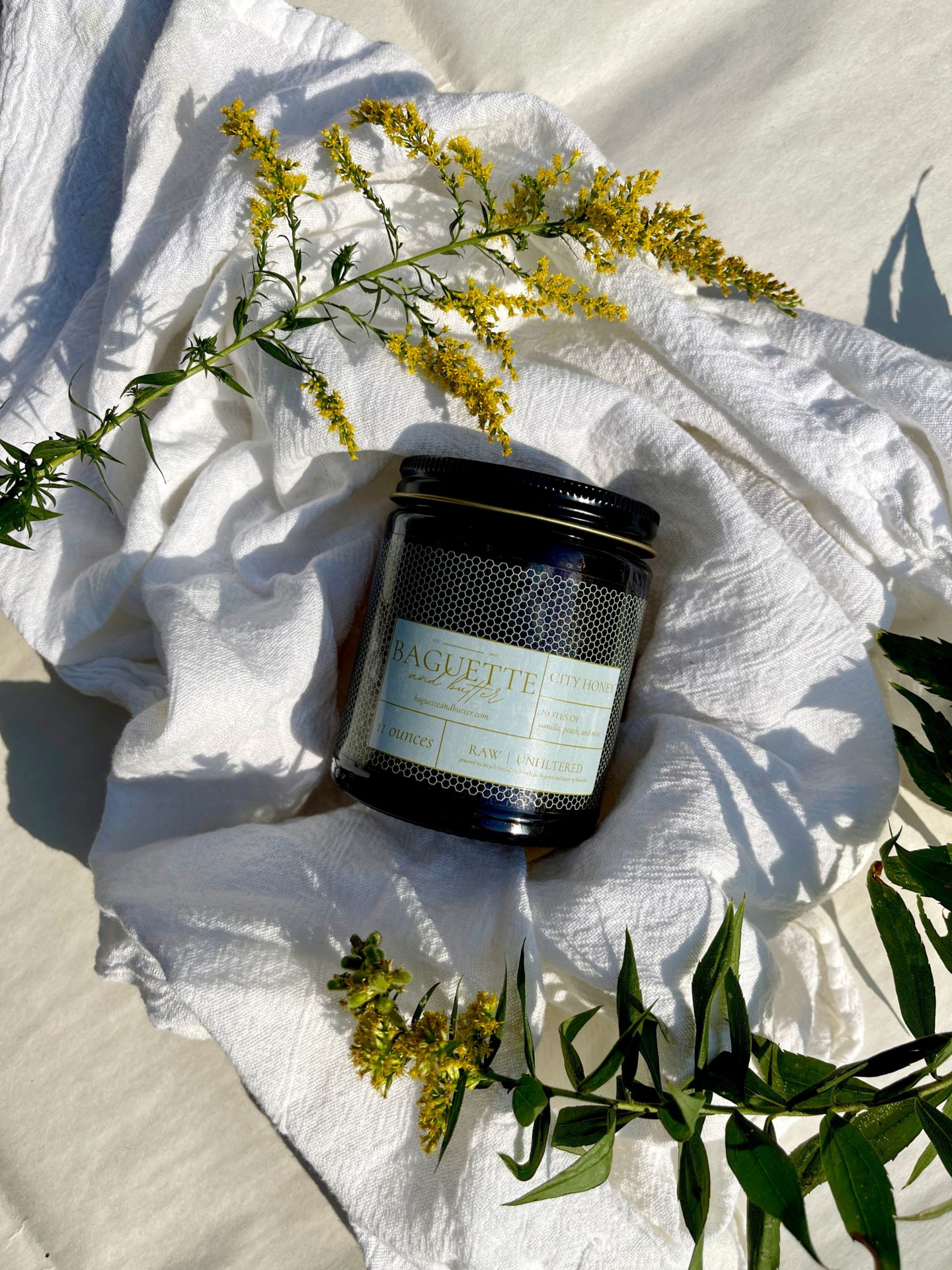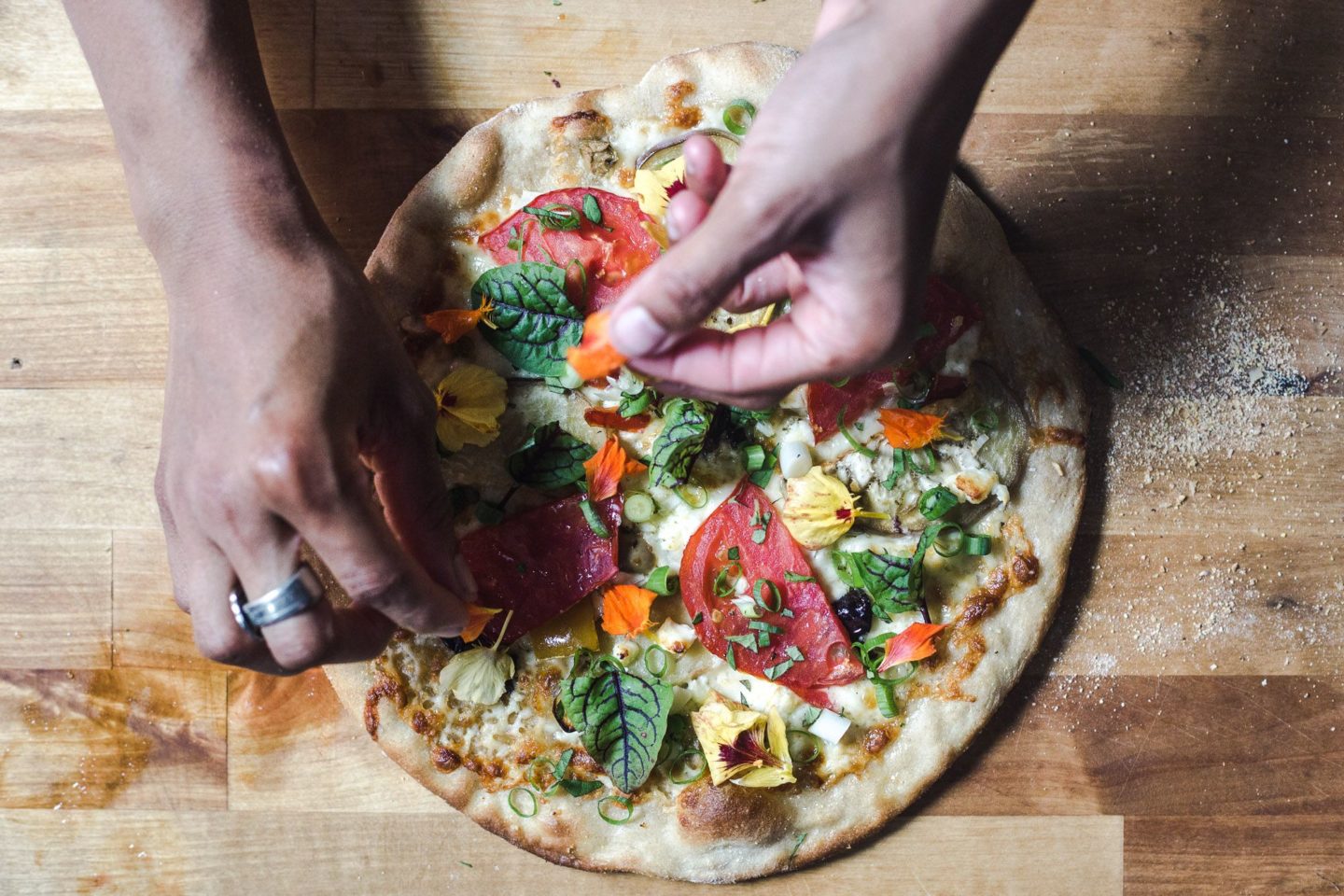How long have you lived in Chicago and what inspired you to launch Baguette and Butter?
I have lived in Chicago for almost ten years now on and off. I moved here to go to culinary school and fell in love with the city, the people, and the farmer’s markets. I started Baguette & Butter eleven years ago as a way for me to document my journey through culinary school. I actually only named the site Baguette & Butter as a placeholder, I figured one day I would find a better name but it stuck.
How are you trying to teach people to embrace slow food in their everyday lives?
Growing up watching my parents work and live in the city there was always this looming question of “what’s for dinner?” Like many city dwellers, sourcing our next meal can tend to feel more like a chore than a pleasure. I knew when I had my own dwelling that I didn’t want cooking to seem like a chore, but an experience that I can slow down my day and appreciate what I am savoring despite how busy the city is around me. Slow food for me is the highest form of self-care. Every time we crave food we have the opportunity to nourish both ourselves and the planet simultaneously. The recipes that we curate in our weekly menus (sent via our newsletter) are meals that I make in my own homemade from both my garden and local farms. The higher quality our ingredients are, the less we need to manipulate them to taste delicious.
What are small steps we can take to be more intentional about the way we shop for our groceries and cook our meals?
It’s all about knowledge, transparency, and trust. Grocery stores and their labels can be so overwhelming and confusing to find what works best for your dwelling. Shop at your local farmers’ market, local food co-ops, and grow a garden even if it’s just one small pot of herbs. In my own dwelling I grow produce that I use often like chives, garlic, tomatoes, shop at the farmers market, or subscribe to my local CSA to enjoy other seasonal produce that I am not growing and to receive local eggs and bread, and I hunt for the best ingredients for my pantry and Little Larder in small shops and online, some of my Little Larder I preserve myself from the abundance from my garden. You’ll often find tea, vegetables, and garlic that I have preserved from my own garden, which brings me so much joy.
Where did you learn how to cultivate a garden? How can those who don’t have a garden integrate nature into their homes?
It was out of sheer necessity. I decided to give up the grocery store for a year in 2016 to see if it was possible to connect with the local food grown in and around my city. It was essentially a detox from grocery stores. I knew if I wanted to access more local produce and learn about the food that nourishes me. I needed to grow my own garden. The first year I grew a patio garden and simply observed. Gardening is mostly looking and listening to better understand nature. Each year I take notes in my garden journal and adjust as needed. In the winter months, I spend my time ordering seeds and studying gardening books.
If you desire to plant a garden, I would simply start with a small pot on a sunny windowsill or under a plant light. You can even grow small vegetables like radishes, thumbelina carrots, or spring turnips in a small planter box. If you don’t live in a sunny dwelling or desire more room to garden I would recommend doing a local search to find a community garden to grow your own vegetables in.
What travel destinations inspire your garden aesthetics and why?
I love French Potager gardens and English countryside gardens. My garden is inspired by both featuring wild pockets of forest gardens while my veg boxes feature structure and order in their design.
What are your favorite curated spots in Chicago to shop for pantry items and why?
Open Produce is probably my favorite local shop in the city. It is probably the smallest market in the city, but they sell local ingredients, and they sell the only olives I will purchase for my dwelling. I also love The Spice House, it is such a treat to shop here. It is so important to me to source high-quality ingredients for my dwelling or else simple recipes can miss the mark on tasting delicious.

You have just launched a small batch of local honey from hives that live right in your backyard. That’s so amazing! Can you talk to us about your honey and what makes it so special for city-dwellers here in Chicago?
Sharing our garden honey has been a dream of mine for three years now. We launched The Market at Baguette and Butter to make it easier to source the best ingredients for your pantry, little larder, garden, and home. We partner with sustainable farmers, artisans, and artists to bring The Market to life. We also launched The Market to double your impact with every recipe you cook. Our City Honey, which is 100% raw unfiltered honey, helps us share the story of the importance of native honey bees and how we can help them thrive simply by purchasing a jar of our City Honey. Each jar purchased helps us plant native pollinator flowers in our city to help nourish city bees and other pollinating insects and restore biodiversity to our city’s plantscape.
Our 2021 vintage of City Honey has its own unique flavor profile with notes of peach, vanilla, and mint. It is truly incredible, it tastes like peach preserves. Our 2019 vintage had notes of grass, herbs, and mint. It’s so fun to see what each season brings to the flavor profile of each harvest of honey. My hope is that every time a city dweller drizzles this honey over toast or in a cup of tea that they can slow down and take a moment to appreciate that they are nourishing both themselves and the earth simultaneously.
What other future launches are in the near future for Baguette and Butter?
We are working on a book launching in 2022 and plan to add more products to The Market very soon.
